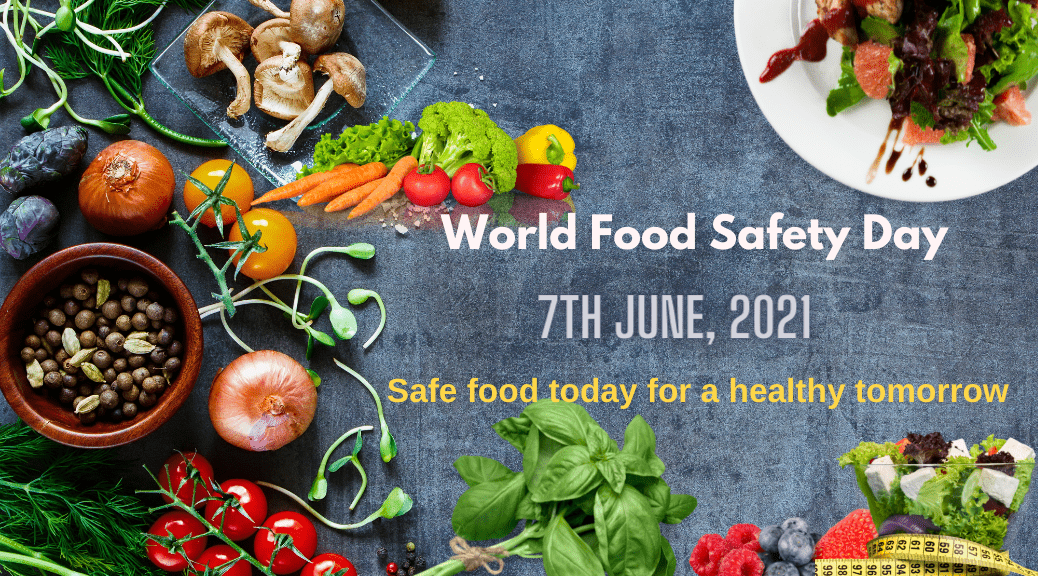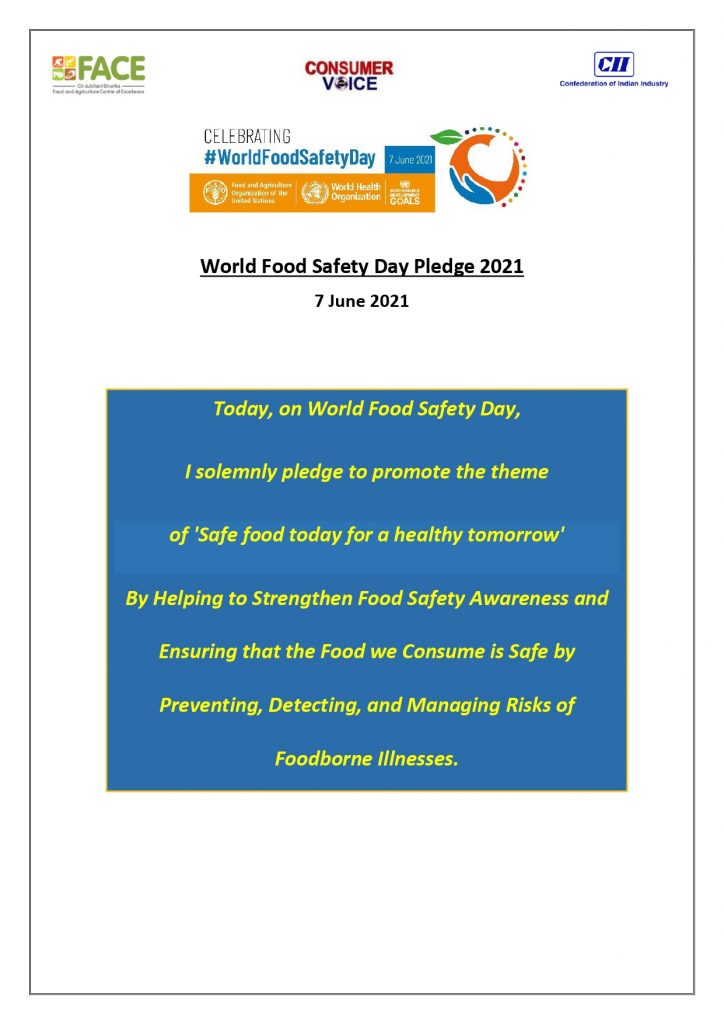World Food Safety Day

- An estimated 600 million cases of foodborne illnesses are reported annually
- About 420 000 people around the world die every year after eating contaminated food
- Children under 5 years of age carry 40% of the foodborne disease burden
- Unsafe food is a threat to human health and economies, disproportionally affecting vulnerable and marginalized people, especially women and children across the globe.
To draw the attention of all governments and policy makers and stakeholders, every year on the 7th of June World Food Safety Day is observed. It aims to inspire action to prevent, detect and manage foodborne risks.

The World Health Organization (WHO) and the Food and Agriculture Organization of the United Nations (FAO) jointly facilitate the observance of World Food Safety Day, in collaboration with Member States and other relevant organizations. This international day is an opportunity to strengthen efforts to ensure that the food we eat is safe, mainstream food safety in the public agenda and reduce the burden of foodborne diseases globally. This day also contributes to food security, human health, economic prosperity, agriculture, market access, tourism, and sustainable development across the world.
Theme of World Food Safety Day 2021 – Safe food today for a healthy tomorrow
What is safe food?
Food provides all the essential nutrients, carbohydrates, fats, and protein in our bodies to sustain growth. Safe food is not only what is served at the table but the entire process contributes to food safety. Food Safety starts from the farm, to manufacturing, transportation, packaging and storing.
Food safety is a shared responsibility between governments, producers ad consumers. Along with strong food laws and regulations, it is also the responsibility of the individuals to ensure that the food is safe for them and their families.
How to ensure that your food is safe?
Though there are some common ways to ensure that your food remains safe by washing it thoroughly, storing it under correct temperature and keeping it free from bacteria that might lead to foodborne illnesses, yet we end up consuming food that might not be good for our body. Here are some simple ways to ensure that your food is safe and what you are consuming is healthy:
Wash your fruits and vegetables thoroughly under running water just before eating, cutting or cooking.
Wash cutting boards, dishes, utensils and countertops with a clean sponge and hot, soapy water after preparing each food item.
Read the nutrition label to understand the amount of fat, salt and sugar intake – limit your salt, sugar and fat intake as excessive use of it could increase the risk of non-communicable diseases or NCDs
Read the lables for fats and trans fats – In India, Food Safety and Standards Authority of India (FSSAI) has capped the amount of trans fatty acids (TFA) in oils and fats to 3% for 2021 and 2% by 2022
